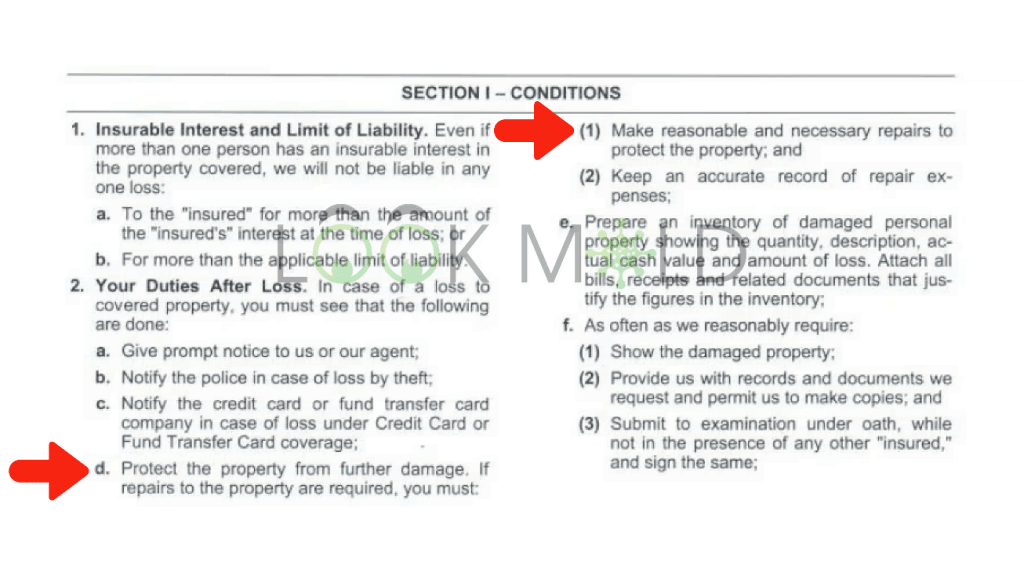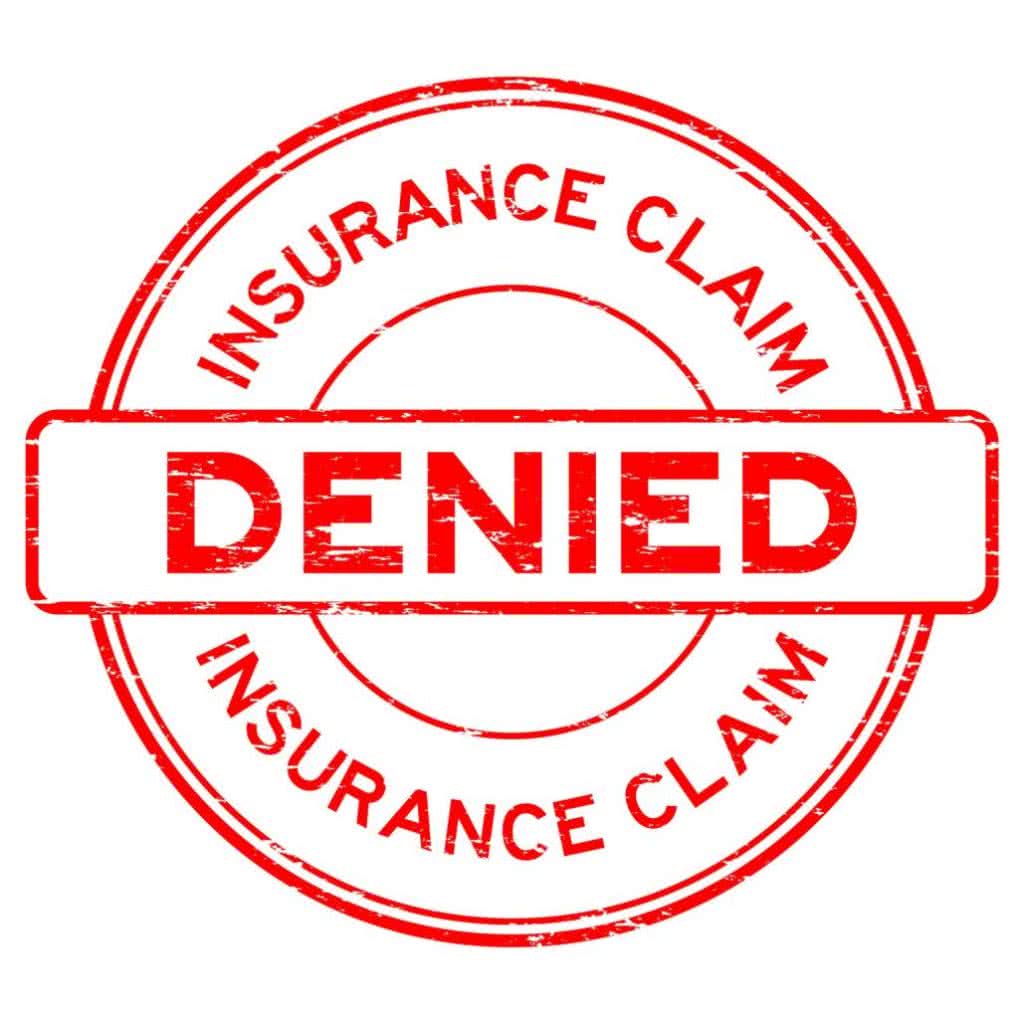Professional Mold Remediation Services
Don't Let Toxic Mold Put Your Family's Health at Risk
Stop mold damage before it spreads. Call now for a free, no-obligation estimate from a local remediation expert.
Free Estimate · Zero Obligation · Available 24/7
Water Damage Insurance Claims
There it goes again…
Your hard-earned money, gone.
Why?
Because you’ve been handing it over to your homeowner’s insurance company month after month… year after year…
And then, disaster strikes.
Your water heater blows while you’re sipping piña coladas on vacation. You come home to puddles of water and mold growing everywhere.
Relax. You’ve got homeowner’s insurance. That means you’re covered, right?
Right?!
Not always.
If you’ve ever had to file a water damage insurance claim, you know it’s not that simple.
This guide, written by a former public adjuster (me), will walk you through everything you need to know to get what’s rightfully yours.
How the Water Damage Insurance Claim Process Works
Water damage can happen fast and in many ways:
- Burst pipes
- Roof leaks
- Toilet overflows
- Refrigerator line leaks
- Dishwasher failures
Whatever the cause, your #1 priority is drying the area ASAP. The longer moisture lingers, the higher your risk of mold growth.
Here’s the typical claim process:
| Step | Action |
|---|---|
| 1 | Call an Emergency Restoration Company. They’ll start the dry-out process immediately. |
| 2 | Notify Your Insurance Company. Required for claim eligibility. |
| 3 | Insurance Adjuster Assesses Damage. Must occur within 15 days (in most states). |
| 4 | Get Repair Estimates. From contractors or remediation companies. |
| 5 | Negotiate a Payout. Based on the adjuster’s report. |
| 6 | Select a Contractor. Sometimes from your insurer’s preferred list. |
| 7 | Begin Repairs. Start work ASAP to prevent further damage. |
| 8 | Mortgage & Insurance Inspections. If you have a mortgage, payments may be released in stages. |

What Your Homeowner’s Insurance Might Not Cover
Insurance policies love the gray areas. Here are key things you should know:
Common Policy Exclusions
| Exclusion | Description |
|---|---|
| “Act of God” | Vague language often used to deny storm-related water claims. |
| Chronic Leaks | Long-term leaks are often denied, your duty is to act quickly. |
| Sewer Backups | Often requires a separate policy. |
| Flooding | Not covered under standard policies. Requires separate FEMA-backed flood insurance. Learn more at FloodSmart.gov. |
Don’t Use the Word “Flood”
Even if your kitchen is “flooded,” don’t say that to your insurance company. “Flood” implies rising water from outside, which isn’t covered.
Your Legal Obligations Under the Policy
Here’s where most claims go south:
Section 1 - Conditions
| Clause | Meaning |
|---|---|
| 2A - “Give prompt notice” | “Prompt” isn’t defined. I’ve seen claims denied for reporting 48 hours later. |
| 2D - “Make reasonable and necessary repairs” | Again, vague. You must prevent further damage, but what’s “reasonable”? |
HUD states: “Take immediate steps to prevent further water intrusion. Delay may limit or void your coverage.” – U.S. Department of Housing and Urban Development (HUD)
Document Everything. In Writing
- Who you spoke to
- When the conversation happened
- What was said
Why? Because once you get that denial letter in the mail, it’s your word against theirs.
Pro Tip: Ask for a call transcript or send an email summary after every conversation.
The High Cost of Emergency Restoration (and Why It’s Worth It)
Emergency drying services may seem expensive, but skipping this step invites mold, rot, and structural damage.
According to the CDC, mold can begin growing in 24 to 48 hours after water exposure. Immediate drying is critical. CDC Mold Basics
When choosing a company:
Ask if they work with insurance
Check reviews and certifications (IICRC is the gold standard)
Choosing a Restoration Contractor
Can you pick your own?
Sometimes. But some insurance companies require you to use their vendors, especially if you want full coverage.
Example: In Florida, Citizens Insurance lets you choose your own contractor, but caps your payout at $10,000 unless you use their vendor. Source: Sun Sentinel
Public Adjuster vs. Insurance Adjuster
| Role | Who They Represent |
|---|---|
| Insurance Adjuster | Your insurance company |
| Public Adjuster | YOU |
As a former public adjuster, here’s my take:
Skip the middleman. Hire an attorney who specializes in denied insurance claims. They have legal teeth.
Insurance Payments When You Have a Mortgage
Your lender has a stake in your property. That means:
- Checks are made out to both you and the bank
- Money is disbursed in thirds:
| Installment | Trigger |
|---|---|
| 1st (33%) | Immediately after claim approval |
| 2nd (33%) | At 50% completion (requires inspection) |
| 3rd (34%) | At 90–100% completion |
Tip: Keep detailed photos and documentation to prove progress.
What If Your Claim Is Denied?

You still have options:
- Review the denial letter with an attorney
- File an appeal (with documentation)
- Consider litigation
FEMA notes: “Insureds have the right to appeal claim decisions and should maintain all documentation of the loss.” – Federal Emergency Management Agency (FEMA)
Key Takeaways
| Do This | Avoid This |
|---|---|
| Report leaks immediately | Waiting more than 24–48 hours |
| Keep everything in writing | Relying on phone calls only |
| Use a reputable dry-out service | Skipping restoration to save money |
| Understand your policy exclusions | Assuming all water damage is covered |
| Hire a lawyer if needed | Blindly trusting your insurer |
Tell Us Your Story
Have you been denied? Got a win you’re proud of? Share your experience with water damage insurance claims in the comments below.
Your story could help someone else get paid.
Need Mold Help?
If your water damage has led to mold, check out our guides:
- Does Bleach Kill Mold?
- Mold Remediation: What to Expect
- How to Prevent Mold Growth After Water Damage
Explore Related Topics:
Notice an update we should make?
We strive for accuracy. Contact us here if you see incorrect or outdated info on this page.

